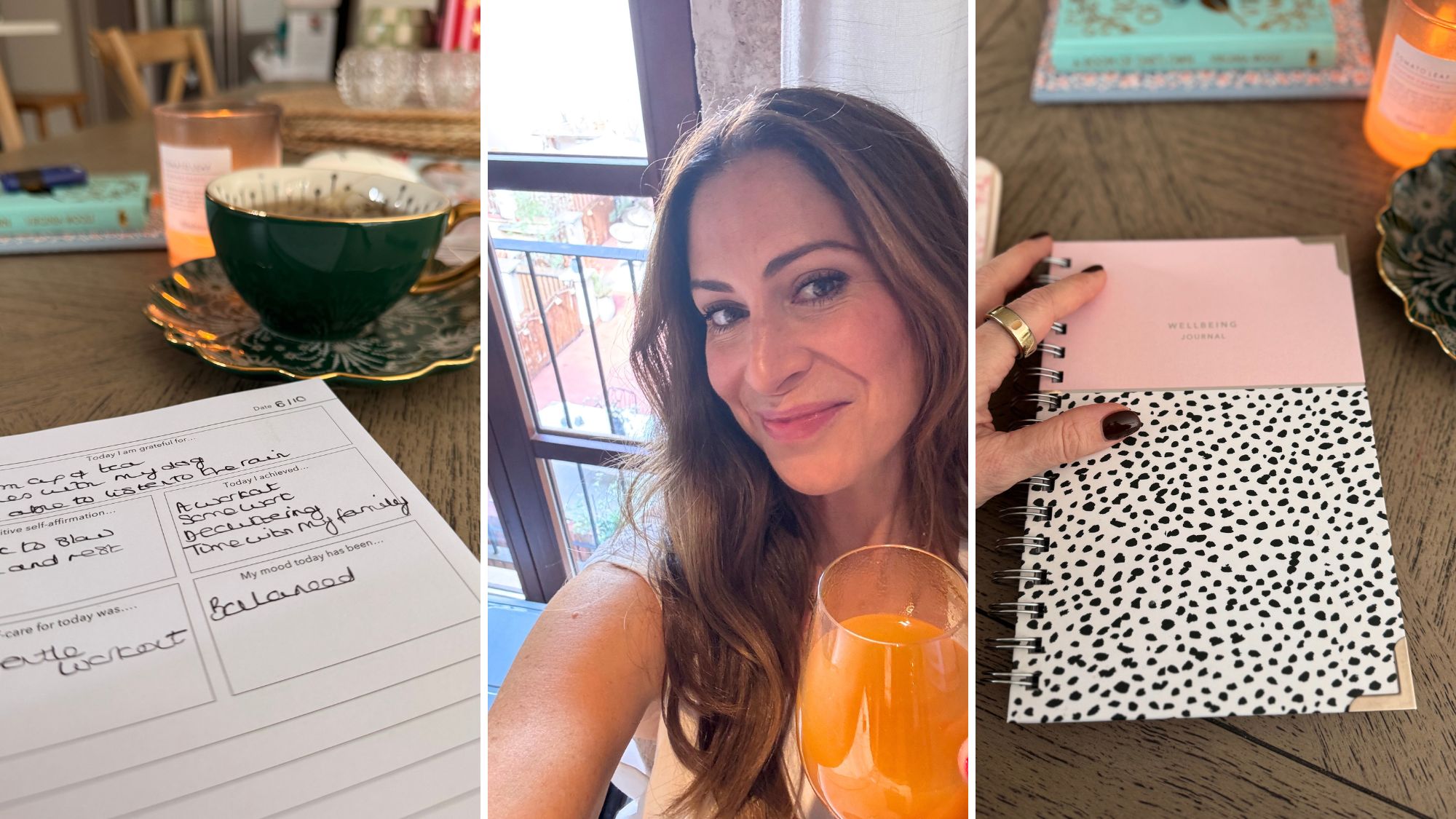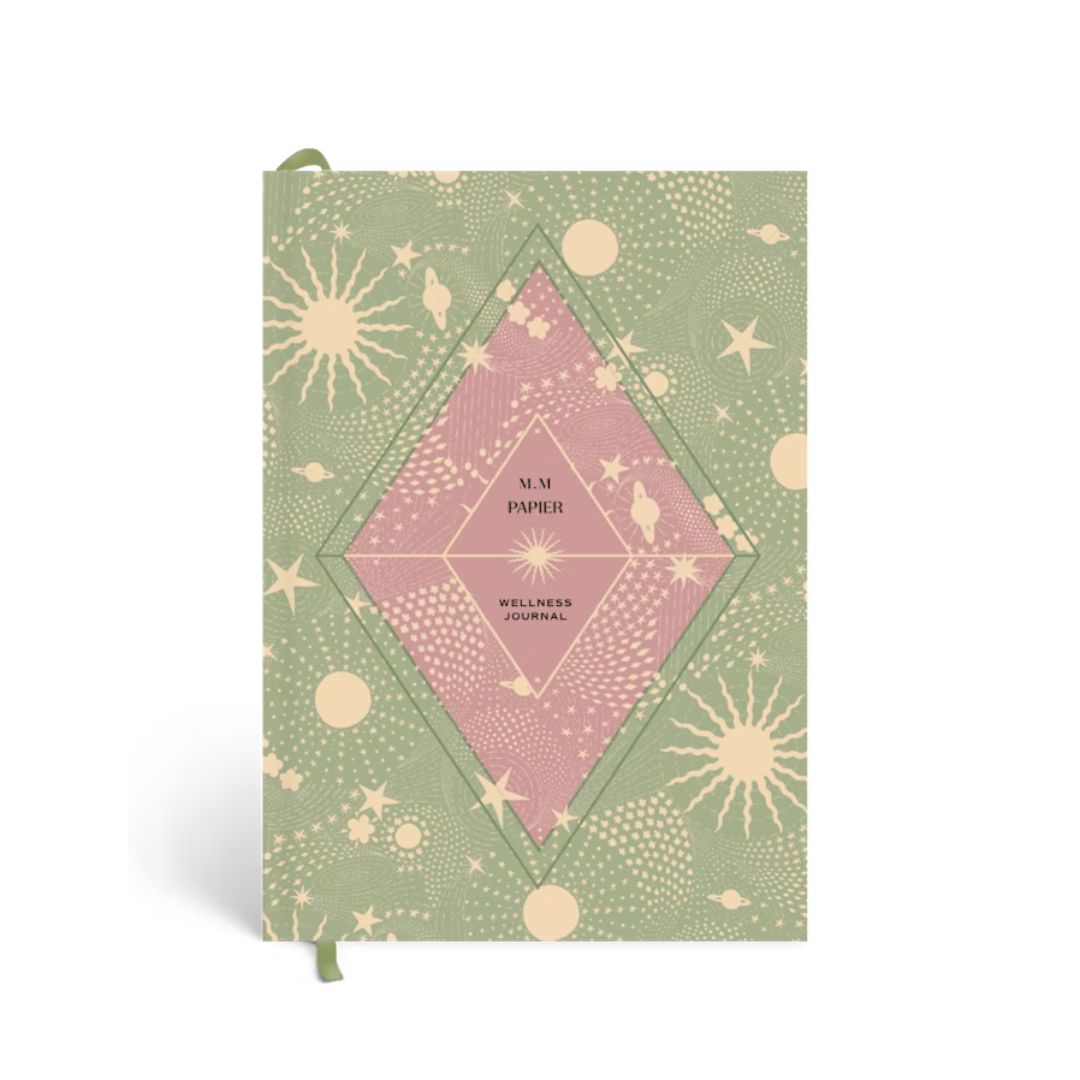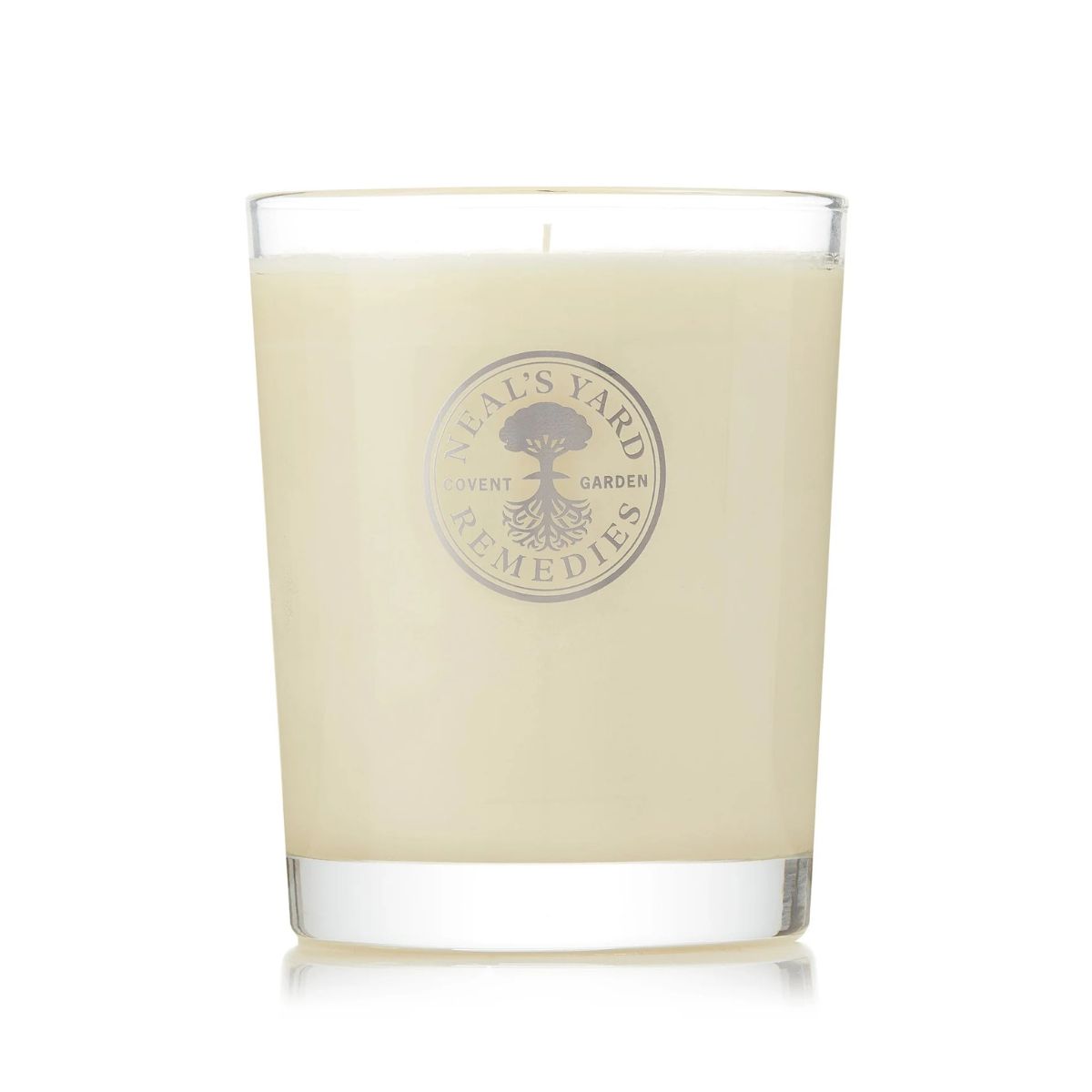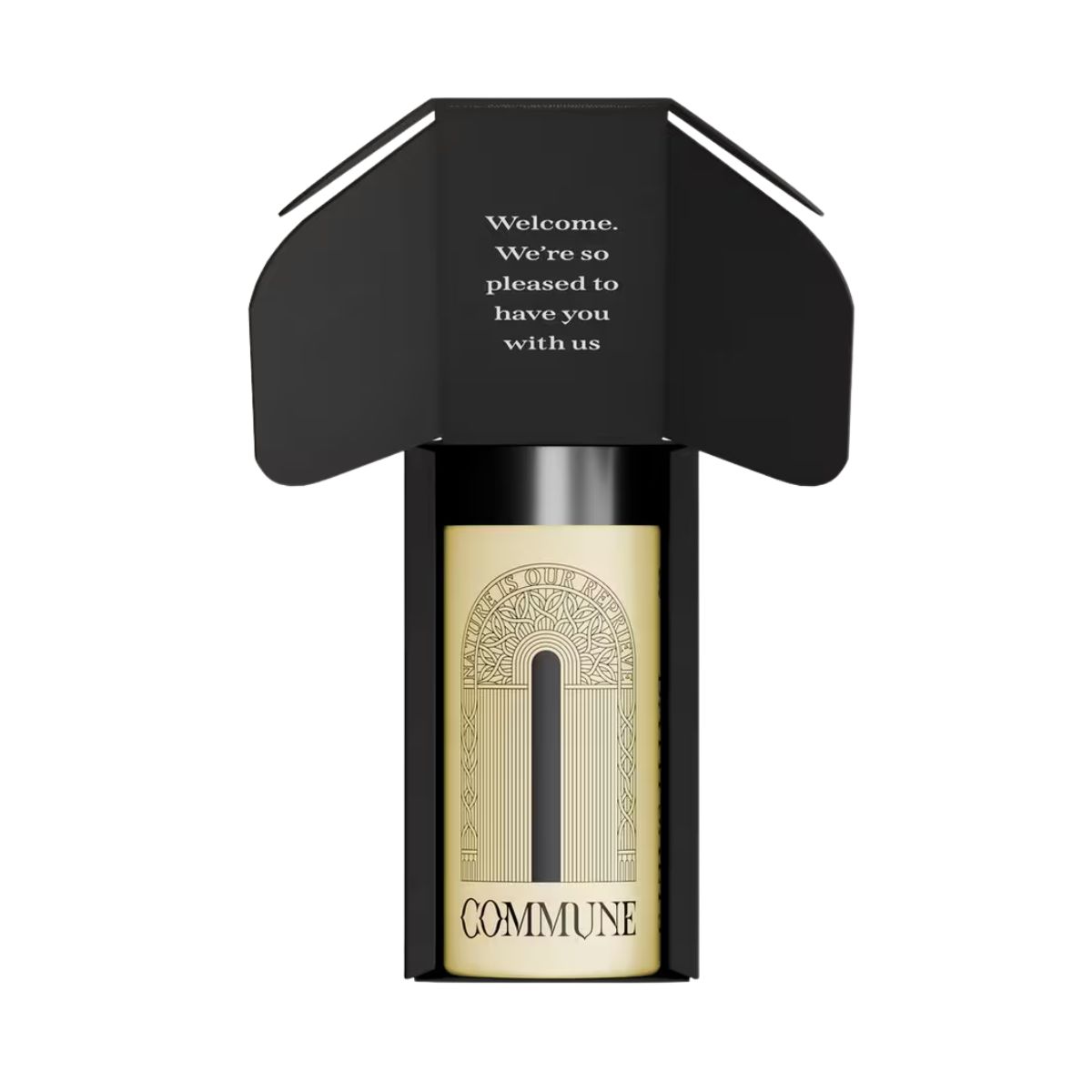I Kept a Gratitude Journal Every Day for a Month - and It Transformed My Positivity and Outlook
There's power in putting pen to paper.


As a writer, it goes without saying that I've always gained a sense of calm and perspective from putting pen to paper. That said, as I've got older, the opportunities for some good old-fashioned writing have become few and far between - I'm either tapping away online for my job, or I'm doing one of the gazillion other things that adulting requires.
But I know that the act of physically writing soothes me - as a child, I was a voracious diary-keeper (much to my teenage embarrassment, naturally) and writing helped me to work through problems, escape from reality and open up new avenues of thought, all in one fell swoop.
And I know I'm not alone: in fact, journalling is having a moment, right now - and there's a growing body of research backing its efficacy as a legitimate mental health tool. Studies (such as this one, published in the journal The Arts in Psychotherapy) show that journalling can help alleviate the symptoms of emotional distress, while further studies (like this one, from the journal Behavioural Sleep Medicine) reveal that it might even help us drift off to sleep.
Similarly, we know that practising gratitude is a powerful mindset tool; the science is compelling here, too. This 2020 randomised controlled trial shows that gratitude interventions can enhance mental wellbeing, even more than self-kindness interventions, while further research proves it to be effective in both treating and helping to prevent depression.
Put the two habits together, then, and all the signs point to an extremely beneficial little practice - so, when I was asked to keep a gratitude journal every day for a month, I was all in. Keep scrolling to find out how I got on, but for more mental health content, do check out our guides to autumnal seasonal self-care, our favourite mental health tips and the best mental health apps, here.
Gratitude journaling is purported to boost happiness and life satisfaction - so I tried it for a month
What is gratitude journalling?
In a nutshell, gratitude journalling is exactly what it says on the tin: the act of journalling the things you're grateful for, whether that's a morning cuppa or having a roof over your head on a rainy day.
"Gratitude journalling is the practice of intentionally writing down things you’re thankful for - big or small - on a regular basis," explains psychotherapist Kamalyn Kaur. "It helps shift attention away from what’s missing or stressful, and toward what’s working, supportive, or meaningful in your life. Over time, it trains the brain to notice the positive more easily — something that can be particularly helpful for people with anxiety or overactive minds."
Celebrity news, beauty, fashion advice, and fascinating features, delivered straight to your inbox!
An incredibly simple practice, its ease belies just how impactful it can be as a form of self-care: our experts were evangelical in their appreciation of it. But it's also deeply rooted in neuroscience, too.
"Gratitude journalling isn’t a passing wellness trend - it’s a form of inner engineering, a gentle act of self-psychology," notes psychotherapist Belynder Walia. "When we consciously express gratitude, we activate the prefrontal cortex, the area of the brain responsible for emotional regulation, empathy, and decision-making. At the same time, the amygdala, our internal alarm system, begins to quieten, easing stress responses and restoring emotional balance. This neural shift stimulates the release of serotonin and dopamine, the body’s natural mood stabilisers, helping the mind and nervous system move from reactivity to calm, from tension to presence."
What are the benefits of gratitude journalling?
You won't have to dig too deep to find there's legitimate, scientifically-backed benefits to gratitude journalling.
1. It helps us gain perspective
Just like noticing glimmers of joy in every day, gratitude journalling helps us to clock all the wonderful things in our lives that are easy to overlook.
"There’s something truly active about gratitude journalling," says counsellor Georgina Sturmer. "It’s not just a passive process of sometimes noticing what we are grateful for. It encourages us to take an active role in noticing, and then articulating, the things that we are grateful for in our life. And when we do this, it can help us to gain a sense of perspective."
2. It can relieve symptoms of depression and anxiety
While it's always important to seek medical advice if you're suffering from mental health issues, gratitude journaling is one tool that might be helpful alongside other recommended treatments for symptoms of depression and/or anxiety.
"The main benefits of gratitude journalling include improved mood, reduced anxiety and stress, better sleep, and an increased sense of contentment," shares Kaur. "Gratitude journalling can help regulate the nervous system by activating calm states and lowering the body’s stress response."
It's like self-care and creative expression, rolled into one.
3. It helps rewire our brains
The human brain is a truly amazing organ, literally responding and changing as we go about our daily lives. In a process known as neuroplasticity, our brain creates new neural pathways in response to internal or external stimuli - in a nutshell, this means that how we think matters. Every time we have the same thought, we're deepening those footpaths in our minds.
Gratitude journalling can help us to form new pathways, entrench healthier ones, and loosen our grip on the more unhelpful spirals we can get ourselves into (not just us, surely?)
"Gratitude journalling isn't about pretending everything’s fine or slapping a happy sticker over life’s chaos," advises psychotherapist Heather Darwall-Smith. "It’s about gently redirecting our mental searchlight to notice what’s nourishing as well as what’s difficult. Over time, that repeated act of noticing helps to rewire the brain.
"When you recall and savour good experiences, you’re strengthening neural pathways associated with calm, contentment, and connection. You are feeding the brain with good stuff: a deliberate practice of absorbing positive moments so they stick."
4. It helps build resilience
"Research shows that expressive writing can alter both mood and physiology, reducing cortisol levels, improving immune function and reshaping the brain’s response to emotional pain," explains trauma specialist and psychotherapist Tina Chummun. "Gratitude journalling builds on this principle: the act of writing engages cognitive processing while the emotional focus on appreciation releases dopamine and serotonin, the neurotransmitters linked to pleasure and resilience."
How to start a gratitude journal
One of the best things about gratitude journaling is that you can truly make it whatever you want - there are no rules here. That being said, it's important to be consistent, as the more you put into it, the more rewarding the process will be.
"When it comes to the timing of journalling, there’s a certain amount of personal preference that is important," says Sturmer. "If we are going to build a new habit, we need to make sure that we can realistically fit it into our routine.
"That said, I do tend to advocate for us to undertake this type of activity when we wake up in the morning. This allows us to reset ourselves for the day ahead, and start off on an optimistic and hopeful note."
I kept a gratitude journal every day for a month - and I'm not stopping now
Weeks one and two
I'm intrigued to start my gratitude journaling journey, so even before the month starts, I'm excitedly searching for aesthetically pleasing journals, and surely I need a new pen, too?
It doesn't take me long to realise that I'm missing the whole point: I don't need to buy fancy new stationery to get started. So, armed with an old notebook (of which I have many!) and a biro, I'm ready to write. Being an evening type rather than a lark, I decide to jot some ideas down at the end of each day.
I'm not going to lie, the first couple of days I felt a bit weird and I struggled to think of anything meaningful to write, making me feel like I wasn't really very good at the whole thing - clearly I missed the boosting self-esteem memo.
Frustrated, I turned back to the experts for some advice - and they hit the nail on the head: I was turning the process into a chore, another thing on my endless to-do list.
"I always say keep it simple," advises chartered psychologist Dr Louise Goddard-Crawley. "Write down three things each day, ideally at night when the brain is consolidating memory. The act of writing matters because it engages more of the brain’s sensory and emotional systems. The key is to feel it, even briefly. The brain doesn’t fully distinguish between what’s happening and what’s vividly remembered, so by recalling a moment of warmth or safety, you recreate it."
So, after a few days of berating myself for not being more creative, I tried a new approach: just three things, in bullet points, every evening. No pressure to make them elaborate - after all, no one was going to read my journal (unlike my teenage angst-ridden tome, which I'm convinced my brother took a peek at).
And just like that, taking the pressure off made all the difference. Thinking back to the experts' advice, nothing was too small to count towards my daily quota (Chumman advised just one to three specific points each day), and almost immediately, I started noticing things throughout the day to pop onto the next day's list. Watching the steam rising in swirls from that first cup of tea in the morning, the dew on the grass in the early light, waking up in a comfy, cocooning bed. Sleepy cuddles with my youngest child, and the dog is crazy with excitement every time I come home (from anywhere, always). Being able to work out, and the opportunity to work at a job that I truly love. Big things, small things and all the things in between - I noticed them all, in a way I never have previously.
In fact, by the start of week two, I'm starting to look forward to the items I'm listing. Not the physical process of writing them down, but the thought of actually experiencing them: apologies for the massive cliche, but it's as though I'm seeing things through a new, clearer lens. Just the thought of carving some time out to watch TV that evening keeps me content all day (the Victoria Beckham documentary, in case you're interested) - it seems I'm pretty basic and easily pleased, after all. Who knew?
Weeks three and four
By this point, I'm so on board with the practice of gratitude journaling that I'm starting to feel a little overwhelmed at how much I'm thankful for - slightly defeating the object, but how lucky am I?
This week, after reading a book about dopamine, I decided to start every day by opening my window and taking a big, deep breath. I'm fortunate enough to live in a small-ish town with plenty of greenery, and I'm struck even over the course of a week by the change in the seasons. Each morning seems a little darker than the previous one, and it's incredibly soothing to see the early morning sun peeking through the clouds on the eastern horizon - something I really start to look forward to, and drink in.
And just these few minutes each morning give me more than enough scope to fill my gratitude cup for the day. I've always loved the oak trees in my back garden, and I feel tuned into them more than ever. I'm grateful for nature reminding me, as the leaves turn and fall, that it's ok to step back and rest a little at this time of year.
I've never really been one for elaborate self-care rituals, believing that I didn't really have the time for them, but I spent the last two weeks actively finding ways to soothe my frazzled nervous system. And yes, it's such a cliche to think we can 'cure' stress and burnout by taking a bath - but this mindset also leads many of us (myself included) to forget that sometimes, the small things really do add up: I treat myself to a morning bath on my day off, and it feels ridiculously indulgent - definitely one for this evening's list.
Interestingly, even my Oura ring approves: for the first time in months, it's telling me I've had more restorative time than usual, and my stress levels have fallen: this is a huge win for this perma-anxious, frazzled mum.
As the month draws to a close, I have no intention of giving up my newfound habit: I've noticed way too many benefits to turn my back on. It's not a magic bullet: this month has brought its fair share of stresses and strains (three children, need I say more?). But I do feel slightly better able to cope with the ebbs and flows of their moods (and my own!)
All in all, I'm surprised and delighted by how much I've loved this little experiment, and for anyone who is on the fence, I'd say, give it a go.
Shop MC UK's favourite wellbeing essentials now:
Do we have to write it down, or can thinking about being grateful work?
Let's be honest: if anything is going to stand in our way when it comes to forming a new habit, it's not having enough time to do it. So, I was interested to learn whether taking a shortcut and simply thinking about things I'm grateful for would work here, too.
However, in this - like so much in life - it seems there are no quick fixes. "Writing it down tends to have a stronger impact," advises Kaur. "Putting thoughts into words helps the brain imprint the experience more deeply — turning fleeting gratitude into a more embodied sense of appreciation. In other words, seeing things written out helps the brain register and remember them. That said, even a quick daily reflection, spoken out loud or mentally noted, can still be beneficial if journaling feels like too much some days."
It's important to note, though, that if journaling starts to feel like a chore, you're likely not going to reap the most rewards. "You don’t have to turn it into homework," says Darwall-Smith. "You could simply end the day by chatting with whoever you live with about your three good things. If you’re more of a solitary thinker, you might like to jot them down. Some people even keep a “gratitude jar” – a running collection of small notes about good moments to open at the end of the year, like emotional confetti."
And who doesn't love confetti?

Anna Bartter is a freelance journalist who writes about health, fitness and women's lifestyle for publications including Stylist, Metro and Psychologies, among others.
She's always on a quest to find a variety of fun and functional workouts that give you the most bang for your workout buck and she's passionate about championing movement for everyone's mental and physical wellbeing.


